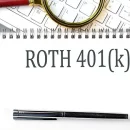How to Factor Costs Related to Aging While Planning for Retirement

Every employee has to retire one day or the other – it’s an undeniable truth of life. As retirement nears, you need to start considering various decisions such as the kind of monthly retirement budget you should maintain or the cash flow you could generate from existing assets. While planning for all this, one massively important factor that you need to account for is aging.
As you grow older, a lot begins to change in your life and your daily expenditures change too. For instance, you are likely to incur more healthcare expenses when you start aging. Ultimately, your age will have a significant impact on your monthly expenses once you retire and you need to plan accordingly.
Table of Contents
How to Factor Costs Related to Aging While Planning for Retirement
Let’s breakdown the various expenses you will have to face after retirement. In doing so, we’ll try to gauge the various costs that will change as you age, and also how you can plan for them.
Essential Expenses
Essential expenses, in this context, refer to the entire gamut of expenses related to your daily life, barring healthcare. So, these encompass expenses related to your household, day-to-day living and automobile and transportation needs, amongst others. Basically, these are expenses that you can barely live without.
Estimates suggest that housing costs the average senior $1,322 a month*. Housing will probably be your largest monthly expense after retirement, as it was when you were working. However, as you age, the only factor you need to consider regarding housing expenses is inflation. Otherwise, aging won’t have any tangible effects on your housing expenses. The costs that you do need to factor in are related to your day-to-day living expenses, as well as your automobile and transportation expenses.
Day-to-day living expenses include food, clothing, utility bills and the like. While these expenses differ for different people, they might change as you grow older. The cost of utilities such as heat, water and electricity are only bound to go up. Moreover, such utilities are a dire requirement for seniors.
For instance, a 30-year-old adult might not particularly mind a cold, winter night without heating, whereas the same cannot be said about someone who’s 70 years old. Your food choices will also change as you age and they are more likely to increase rather than decrease. So, it’s advisable to factor in such expenses while planning for your retirement – they might just provide an extra cushion when you need it.
There is some good news when it comes to automobile and transportation expenses – you’ll be spending less on transportation because you won’t have to commute to work every day. In most cases, seniors don’t drive their automobiles as much as younger adults do. So, you can expect some savings concerning fuel and automobile maintenance too.
Healthcare
It is estimated that the average American retiree spends nearly $499 a month** on healthcare services. While this figure holds true for most, it can indeed become higher if you are ailed by multiple health-related problems. As a young, working individual in the prime of your life, you might not be too concerned about your health. However, as the human body grows older, it becomes more susceptible to various medical issues. Chances are that you will keep spending more and more on healthcare as you get older.
In addition to this financial burden, there are many ailments that Medicare doesn’t cover. For instance, you will have to pay for vision and hearing aids from your own pocket. As such, it would be a good idea to factor in these medical expenses when planning for your retirement.
Another factor that needs to be considered is long-term care. Reports suggest that a whopping 70% of Americans above the age of 65 will require some form of long-term care during their lifetime. As you grow older, you might require assisted living facilities or home care aides too. These can put a significant strain on your monthly budget, so you need to plan for it accordingly. If you can afford it, set aside some money towards long-term care – especially if you are suffering from a chronic ailment or have a history of diseases in your family.
Leisure and Entertainment
As a retiree, you’ll start having a lot more time on your hands as compared to the days when you were working. Ideally, this time should be spent in a leisurely manner, pursuing interests and hobbies that you didn’t get a chance to indulge in earlier. After all, you’ve worked all your life and now it’s about time that you start enjoying yourself.
The average senior in America spends about $197 a month*** on leisure and entertainment. While this figure is quite reasonable, it can be bought further down by making use of senior discounts. Many public places like movie theatres, national parks and museums offer such discounts and you need to avail them, which isn’t hard to do anyway.
What needs to be factored in are your individual preferences. For instance, you might want to travel the world or indulge in an expensive hobby like collecting antiques. In such a case, as you can very well imagine, $197 a month will just not suffice. So, plan a budget for leisure-related discretionary activities based on your personal preferences.
To Sum it Up
It is certainly difficult to gauge your monthly expenses during retirement. As you age, your expenses cannot be pinpointed – they differ from person to person. However, by having a clear idea of what expenses to expect as you grow older, you can be better prepared to plan for a retired life that won’t leave you financially stranded.
If you want any kind of assistance with your retirement planning, consult top financial advisors today.
Note: All facts and figures with asterisks (*) mentioned in the article are according to the Bureau of Labor Statistics, USA.


















